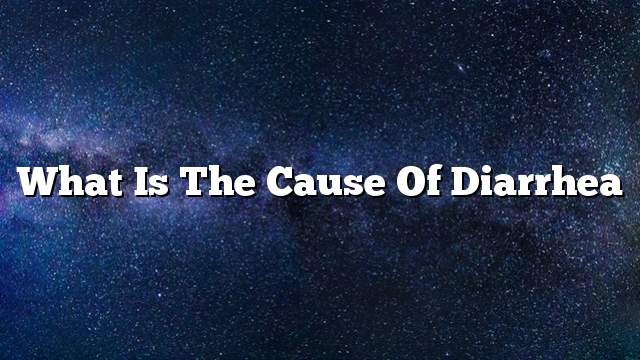Diarrhea is not a disease in itself and is not a serious thing in most cases, it is a symptom of another disease, which may disappear at the same time and within hours and may last for more than a day sometimes. The term diarrhea refers to looseness in the stool, its fluidity and tendency to ionization. Diarrhea may be associated with occasional blood outages or mucus discharge. Unsweetened food cuts may also occur naturally, and the patient may experience bloating, pain and colic. If diarrhea persists for several days, the patient will suffer from a shortage of salts and body fluids. Therefore, the patient must be given plenty of fluids and salts to compensate for the shortage.
Causes of diarrhea
1. Excessive or excessive intake of certain foods such as apricot.
2. Excessive or excessive intake of some artificial sweeteners such as sorbitol.
3. Medications of some types of drugs as a side effect such as metformin, but it should be noted here that these symptoms, such as diarrhea and others vary from person to person, and not necessarily that these symptoms occur to all. And may occur as a result of the excessive or incorrect use of drugs that facilitate or treat constipation.
4. Intestinal sensitivity of some types of food, and allergic digestive diseases such as wheat allergies. The intestine does not accept gluten, which is present in wheat, oats, barley and other grains and does not absorb it, causing diarrhea.
5. Diarrhea may be a symptom of certain diseases such as Irritable Bowel Syndrome, ulcerative colitis, or as a result of Crohn’s disease, a rare disease that leads to ulceration and irritation of the intestinal lining.
6. It may be the result of bacterial infections or food poisoning, such as viral infections. It is treated automatically after two or three days, and is sometimes referred to as gastric ulcers, intestinal influenza, and bacterial and parasitic infections.
7. Some diseases such as increased thyroid secretion and some chronic diseases such as diabetes.
8. It may be due to exposure to some radiation, such as the use of radiation in the treatment.
9. The presence of tumor or cancer in the digestive system, and the presence of other cancers.
10 – undergo surgery and operations in the digestive system.
